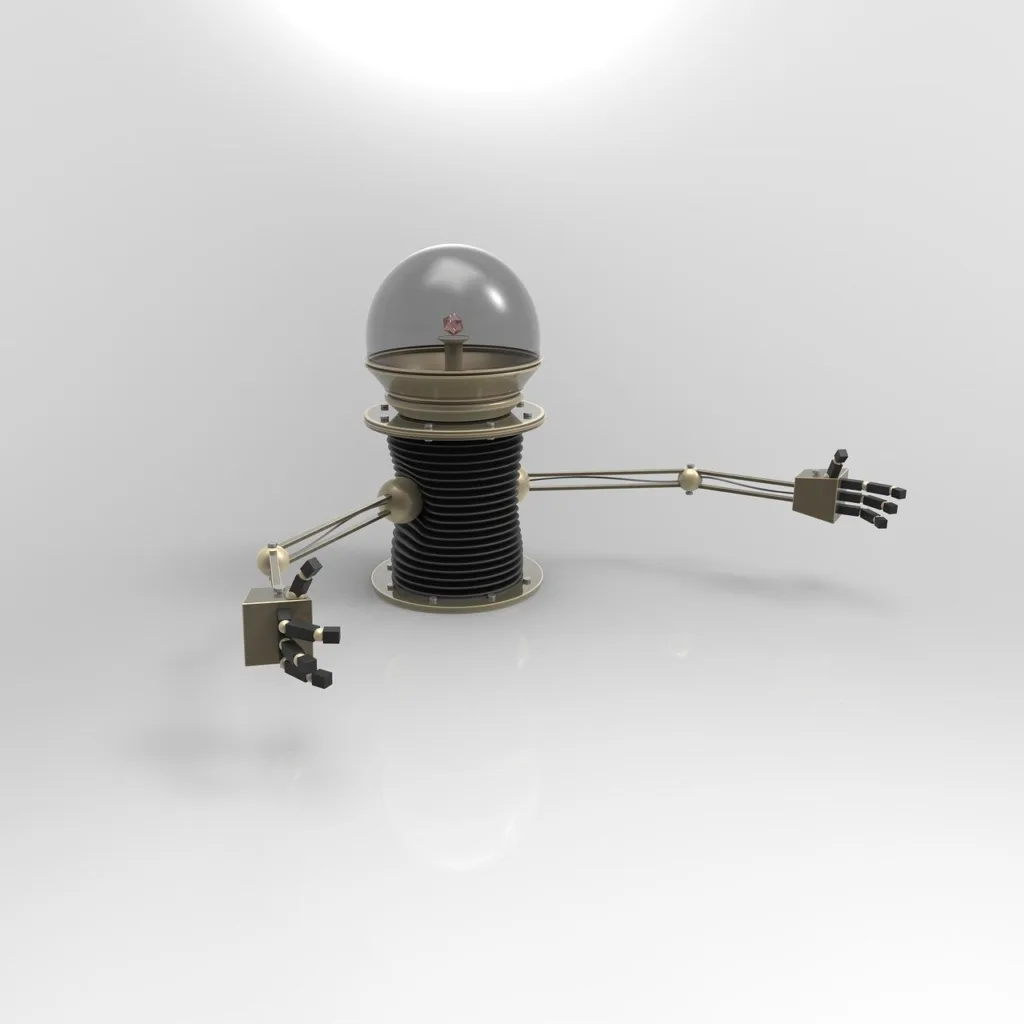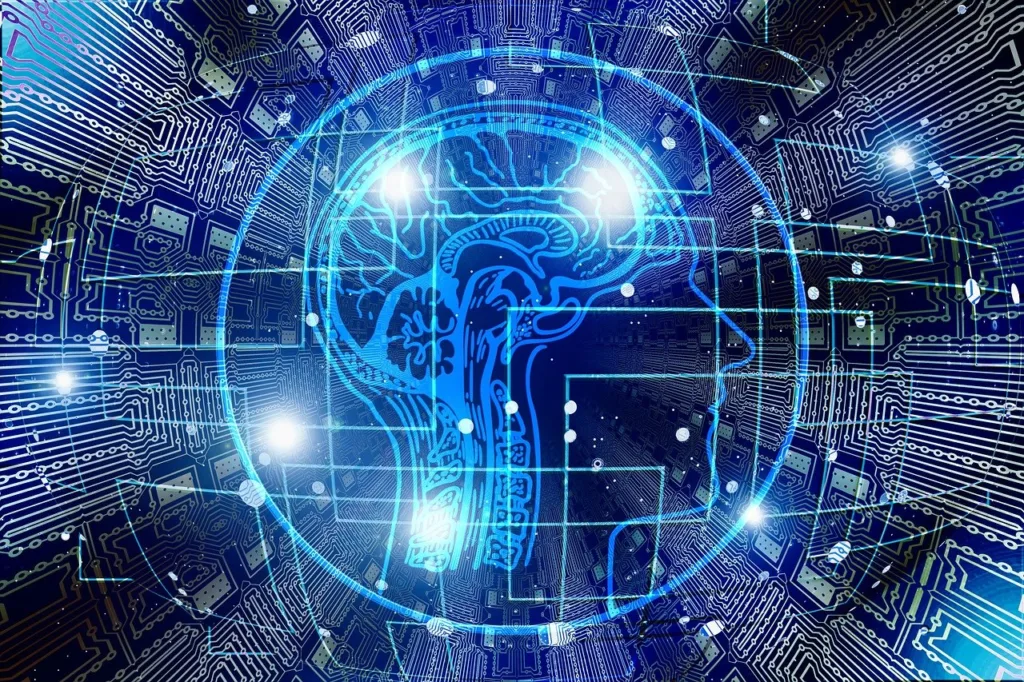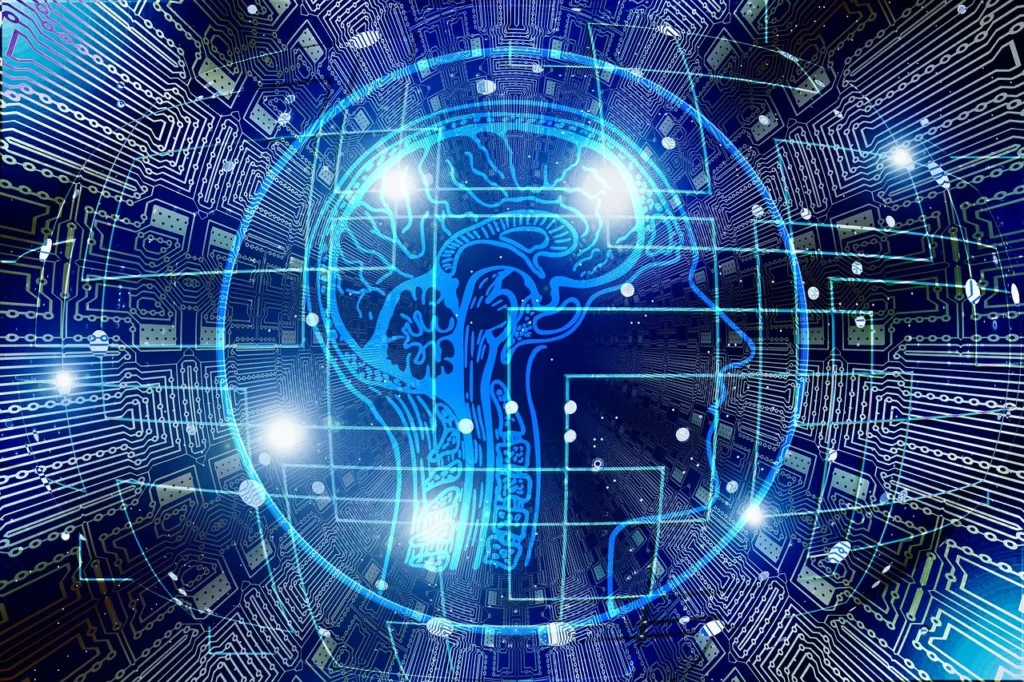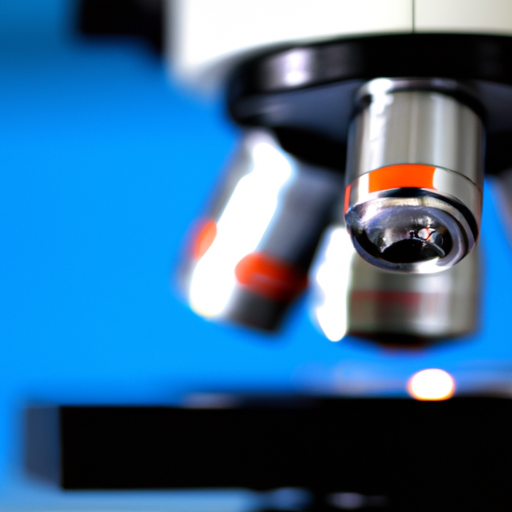Imagine a world where everyday tasks are effortlessly handled by intelligent machines. AI-powered systems have emerged as a game-changer, revolutionizing industries and shaping the future of technology. From personalized virtual assistants that anticipate your needs to self-driving cars that navigate the roads with precision, these advanced systems are transforming the way we live and work. With their ability to learn and adapt, AI-powered systems are catapulting us into a fascinating era of innovation and automation.

Understanding AI-Powered Systems
AI-powered systems refer to technological solutions that utilize artificial intelligence (AI) capabilities to perform tasks and make decisions that would typically require human intervention. These systems are designed to analyze vast amounts of data, learn from patterns, and adapt their behavior over time. By leveraging algorithms and machine learning, AI-powered systems can automate complex processes, enhance efficiency, and improve overall performance.
What are AI-Powered Systems?
AI-powered systems encompass a wide range of applications across various industries. They include AI-powered healthcare systems, customer service chatbots, manufacturing processes automation, transportation systems optimization, financial systems analysis, and more. These systems integrate advanced technologies such as machine learning, natural language processing, computer vision, and robotics to mimic human intelligence and deliver intelligent solutions.
How do AI-Powered Systems work?
AI-powered systems rely on algorithms and large datasets to process information and make smart decisions. They consist of three main components: data input, data processing, and output. Initially, relevant data is collected and preprocessed to ensure accuracy and quality. Next, the algorithms analyze the data, extract patterns, and generate insights. Finally, the system produces an output, which can range from automated actions to personalized recommendations.
Benefits of AI-Powered Systems
AI-powered systems offer numerous benefits across different sectors. One major advantage is their ability to streamline processes and increase productivity. By automating repetitive and mundane tasks, these systems free up valuable time for employees to focus on more creative and complex work. Additionally, AI-powered systems can enhance accuracy and precision, as they are not prone to human errors and biases. They can also analyze vast amounts of data at a speed that human operators cannot match, leading to more informed decision-making.
Challenges of AI-Powered Systems
While AI-powered systems offer many advantages, they also come with their own set of challenges. One prominent concern is ensuring the transparency and interpretability of AI algorithms. The complexity of these systems can make it difficult to understand how they arrive at certain conclusions or predictions. Additionally, addressing bias and discrimination in AI systems is crucial to preventing unfair outcomes. Another significant challenge is the need to protect data privacy and security, as AI-powered systems rely heavily on sensitive personal and corporate information. Finally, human oversight and accountability are essential to ensure that AI systems are used responsibly and ethically.
Applications of AI-Powered Systems
AI-Powered Healthcare Systems
AI has revolutionized the healthcare industry by enabling more accurate diagnostics, personalized treatment plans, and improved patient care. AI-powered systems can analyze medical records, imaging data, and patient symptoms to provide fast and accurate diagnoses. They can also assist in drug discovery, monitor patient vital signs, and optimize hospital operations.
AI-Powered Customer Service
AI-powered chatbots and virtual assistants have transformed the way businesses interact with their customers. These systems can provide instant support and personalized recommendations, improving customer experience and satisfaction. Chatbots can handle routine inquiries, assist with product recommendations, and resolve minor issues, freeing up human agents to focus on more complex customer concerns.
AI-Powered Manufacturing Processes
In manufacturing, AI-powered systems have the potential to optimize production lines, improve quality control, and reduce downtime. By analyzing sensor data and historical records, these systems can predict equipment failures and schedule preventive maintenance. They can also optimize inventory management, supply chain logistics, and reduce waste.
AI-Powered Transportation Systems
AI-powered systems are revolutionizing the transportation industry by enhancing safety, efficiency, and sustainability. Autonomous vehicles, equipped with AI capabilities, can navigate roads, interpret traffic signals, and make real-time decisions. AI-powered algorithms can optimize traffic flow, predict demand, and reduce congestion. Additionally, AI systems can assist in fleet management, route planning, and reducing fuel consumption.
AI-Powered Financial Systems
AI-powered systems have transformed the way financial institutions operate, leading to improved fraud detection, risk assessment, and personalization of financial services. These systems can analyze vast amounts of financial data, identify fraudulent transactions in real-time, and detect patterns that indicate potential threats. They can also provide personalized investment recommendations, improve credit assessment, and automate routine financial tasks.
Ethical Considerations and AI-Powered Systems
Ensuring transparency in AI systems
Transparency is crucial when it comes to AI-powered systems. It is essential to understand how these systems arrived at a particular decision or recommendation. To ensure transparency, developers should design AI algorithms that can be interpreted and explain their reasoning. By providing clear explanations for decisions made, AI-powered systems can enhance trust and facilitate accountability.
Addressing bias and discrimination
AI systems are only as good as the data they are trained on. If the training data contains biases or discriminatory patterns, the AI system can inadvertently perpetuate these biases in its decisions and recommendations. It is crucial to address bias in data collection and algorithm development. Regular audits and ongoing monitoring are necessary to identify and mitigate any bias that may arise.
Data privacy and security concerns
AI-powered systems heavily rely on collecting, analyzing, and storing vast amounts of data, often including sensitive and personal information. Ensuring data privacy and security is paramount to protect individuals and organizations from potential breaches or misuse of data. Strict protocols for data handling, encryption, access control, and regular security audits should be implemented.
Human oversight and accountability
While AI-powered systems can automate processes and make intelligent decisions, human oversight and accountability are still necessary. Humans have the responsibility of setting ethical guidelines, ensuring compliance with regulations, and monitoring the system’s performance. In cases where AI systems make critical decisions, there should always be a “human-in-the-loop” approach to prevent potential errors or ethical dilemmas.
AI-Powered Systems in the Digital Age
Role of AI in data analysis and decision-making
As data becomes more abundant, AI-powered systems play a crucial role in processing and analyzing vast datasets quickly. AI algorithms can uncover meaningful patterns and insights that would otherwise be time-consuming for humans to identify. This enables organizations to make data-driven decisions that are more accurate, timely, and efficient.
Enhancing user experiences
AI-powered systems can improve user experiences by personalizing interactions and recommendations. Machine learning algorithms study user behavior, preferences, and feedback to tailor experiences to individual needs. Whether in e-commerce, entertainment, or social media, AI-powered systems can deliver customized content, recommendations, and targeted advertisements that resonate with users.
Automation and optimization of processes
Automation is a key driver of efficiency and productivity in many industries. AI-powered systems can automate repetitive and mundane tasks, enabling employees to focus on more strategic and creative roles. From data entry and document processing to inventory management and quality control, these systems streamline processes, reduce errors, and increase overall operational efficiency.
Predictive analytics and forecasting
With access to vast amounts of historical and real-time data, AI-powered systems excel in predictive analytics and forecasting. These systems can identify trends, patterns, and correlations within datasets to make accurate predictions about future outcomes. From demand forecasting to financial market predictions, AI-powered systems assist organizations in making informed decisions and planning for the future.

The Future of AI-Powered Systems
Advancements in machine learning algorithms
Machine learning algorithms are continuously evolving, leading to more advanced AI-powered systems. Ongoing research and development are driving innovations in deep learning, reinforcement learning, and generative models. These advancements will enable AI systems to perform even more complex tasks, understand natural language better, and adapt to dynamic environments.
Integration with the Internet of Things (IoT)
The integration of AI-powered systems with the Internet of Things (IoT) offers exciting possibilities. By connecting AI capabilities to a network of smart devices and sensors, AI-powered systems can collect vast amounts of data in real-time. This integration can enable autonomous decision-making, remote monitoring, and predictive maintenance, creating a more connected and efficient world.
AI-powered autonomous systems
AI-powered autonomous systems are set to revolutionize industries such as transportation, logistics, and manufacturing. Autonomous vehicles, robots, and drones equipped with advanced AI technologies can perform tasks independently, leading to increased safety, efficiency, and productivity. As these systems continue to advance, we can expect further integration of AI into various autonomous applications.
Ethical and regulatory frameworks
The future of AI-powered systems will rely heavily on establishing ethical and regulatory frameworks. As the impact of AI becomes more pronounced, society must address concerns such as accountability, privacy, fairness, and bias. Developing clear guidelines and standards for the development, deployment, and use of AI-powered systems is crucial for ensuring responsible and ethical practices.
AI-Powered Systems in Education
Personalized learning experiences
AI-powered systems have the potential to revolutionize education by providing personalized learning experiences. These systems can analyze student data, learning preferences, and performance to tailor educational content and activities. By adapting to each student’s needs and pace, AI-powered systems can enhance engagement, improve learning outcomes, and address individual strengths and weaknesses.
Smart tutoring systems
Smart tutoring systems leverage AI technologies to provide personalized guidance and support to students. These systems can analyze student responses, adapt learning materials, and provide real-time feedback. By understanding each student’s learning style and challenges, AI-powered smart tutors can deliver targeted interventions and facilitate effective learning.
Automated grading and feedback
AI-powered systems can automate the grading process, saving time for educators and providing instant feedback to students. Through natural language processing and machine learning, these systems can analyze written assignments and provide objective and consistent grading. This automation frees up instructors to focus more on guiding students and providing qualitative feedback.
AI-powered educational assistants
AI-powered educational assistants can assist teachers in various administrative and instructional tasks. These assistants can automate administrative tasks like scheduling, grading, and resource management. They can also provide instructional support such as answering student questions, recommending resources, and creating personalized study plans. AI-powered educational assistants can enhance productivity and allow teachers to focus more on teaching and mentoring.

AI-Powered Systems in Business
AI-powered sales and marketing
AI-powered systems have transformed sales and marketing by enabling targeted advertising, customer segmentation, and lead generation. These systems can analyze vast amounts of customer data, purchase history, and online behavior to deliver personalized advertisements and recommendations. AI-powered chatbots also play a vital role in sales and marketing, providing instant support and collecting valuable customer information.
Automating repetitive tasks
AI-powered systems excel in automating repetitive and mundane tasks that do not require human intervention. From data entry and report generation to email filtering and scheduling, these systems can streamline workflows and increase efficiency. By automating these tasks, employees can focus on more complex and strategic work, leading to higher productivity and job satisfaction.
Supply chain and inventory management
AI-powered systems have significant implications for supply chain and inventory management. These systems can analyze historical sales data, market trends, and other relevant factors to make accurate demand forecasts. They can optimize inventory levels, reduce stockouts, and manage procurement processes. By ensuring the right products are available at the right time, AI-powered systems help businesses operate efficiently and meet customer demands.
AI-based fraud detection
AI-powered systems play a crucial role in detecting and preventing fraud in various industries. By analyzing transaction data and patterns, these systems can identify suspicious activities and flag potential fraudulent transactions. AI algorithms can detect anomalies, validate identities, and provide real-time alerts, protecting organizations and their customers from financial losses and security breaches.
AI-Powered Systems and the Job Market
Impact on employment
The rise of AI-powered systems has raised concerns about the impact on employment. As certain tasks become automated, there is a possibility of job displacement in some industries. However, historical evidence suggests that while some jobs may be replaced, new job opportunities and roles will emerge alongside AI. The job market will likely undergo a transformation, requiring individuals to upskill and adapt to new roles that complement AI-powered systems.
New job opportunities
AI-powered systems will create new job opportunities in various fields, including AI research and development, data science, machine learning engineering, and AI system maintenance. As organizations adopt AI technologies, there will be a growing demand for skilled professionals who can develop, implement, and maintain AI-powered systems. Positions focused on interpreting and leveraging AI-generated insights will also be in high demand.
Reskilling and upskilling the workforce
As AI-powered systems become more prevalent, reskilling and upskilling the workforce are crucial for individuals to remain competitive. Education and training programs should focus on teaching skills that complement AI, such as critical thinking, creativity, problem-solving, and emotional intelligence. Upskilling programs can also provide employees with technical skills to work alongside AI systems, ensuring a smooth transition and optimal collaboration.
Collaboration between humans and AI
The future of work lies in the collaboration between humans and AI-powered systems. While AI can automate routine tasks and provide insights, humans bring unique qualities such as creativity, empathy, and strategic thinking. By leveraging the strengths of both humans and AI, organizations can achieve higher productivity, innovation, and customer satisfaction. Collaboration will require effective communication, continuous learning, and creating a work culture that embraces AI-powered technologies.
AI-Powered Systems in Security
AI-powered surveillance systems
AI-powered surveillance systems have revolutionized security by enabling real-time threat detection and prevention. These systems can analyze video feeds, detect unusual activities, and identify potential security threats. AI algorithms can also integrate with facial recognition technology to enhance security measures in public spaces and access control systems.
Threat detection and prevention
AI-powered systems play a vital role in threat detection and prevention across various domains. Cybersecurity systems can analyze network traffic, detect suspicious activities, and identify potential cyber threats. AI algorithms can also analyze large amounts of data to identify patterns that may indicate impending security breaches or attacks. By providing real-time alerts and automating threat response, AI-powered systems bolster security measures.
Cybersecurity and AI
AI-powered systems have both positive and negative implications for cybersecurity. While these systems can enhance security measures, they can also be targeted by malicious actors. Adversarial attacks aim to deceive AI systems by manipulating input data, compromising their accuracy and reliability. Ensuring robust cybersecurity measures, continuous monitoring, and adaptive defenses are crucial to protect AI-powered systems from potential attacks.
Biometric authentication
AI-powered systems have improved biometric authentication, providing secure and reliable identification methods. Face recognition, fingerprint scanning, and voice recognition are examples of biometric authentication systems enhanced by AI algorithms. These systems can accurately verify and authenticate identities, reducing the risk of unauthorized access and identity fraud.
The Role of AI-Powered Systems in Research and Development
Accelerating scientific discoveries
AI-powered systems have the potential to accelerate scientific discoveries by analyzing vast amounts of scientific data and making connections between variables. In fields such as genomics, astronomy, and materials science, AI algorithms can uncover hidden patterns and relationships that may lead to breakthrough discoveries. AI-powered systems can assist researchers in hypothesis generation, experimental design, and data analysis.
AI in drug discovery
AI-powered systems are transforming the field of drug discovery by speeding up the process and reducing costs. These systems can analyze large databases of molecular structures, predict drug-target interactions, and prioritize potential candidates for further research. AI algorithms can assist in virtual screening, lead optimization, and identifying novel drug targets, streamlining the drug discovery and development pipeline.
Robotic automation in laboratories
AI-powered robotic automation is revolutionizing laboratory workflows and experiments. Robotic systems equipped with AI capabilities can handle repetitive tasks, conduct experiments more efficiently, and improve reproducibility. These systems can perform tasks such as sample handling, liquid dispensing, and data collection, freeing up researchers’ time for more complex and intellectually demanding work.
Optimizing research processes
AI-powered systems can optimize research processes by automating data collection and analysis, reducing manual errors, and enhancing reproducibility. These systems can process large amounts of data, extract relevant information, and generate insights. By streamlining research workflows and providing accurate and reliable results, AI-powered systems enable researchers to focus more on the interpretation and understanding of their findings.
The continuous advancements in AI-powered systems are shaping the way we live and work. From healthcare to education, transportation to security, AI is transforming industries, enabling automation, enhancing decision-making, and revolutionizing user experiences. However, it is crucial to address ethical considerations, such as transparency, bias, and data privacy, while harnessing the potential of AI. With the right frameworks and understanding, AI-powered systems have the potential to unlock a future where humans and intelligent machines work together to create a better society.


